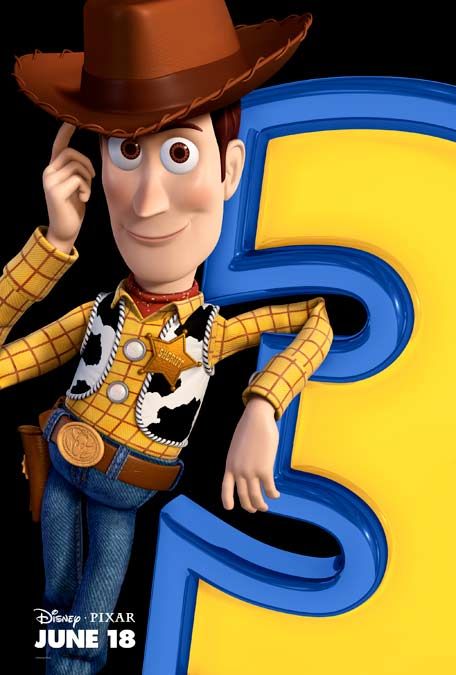
Like so many others, Toy Story has been the defining filmic trilogy of my life. Sure, I watched Back To The Future one through three repeated times, burned through the Indiana Jones trilogy time and time again, and of course stuffed myself with the galactic space opera of Star Wars. But at the end of the day, these were films that came before I cared all that much. I wasn't a developed human being at the beginning or the end of these trilogies, thus, enjoyment aside, they're burned in to my brain as nostalgia more than anything else. Toy Story and its ilk is entirely different. The first Toy Story film dropped in to my conscious when I was 13, just barely an adolescent, but already decidedly in love with film and all that came with it. Toy Story 2 appeared as I faded out of high school, and it's themes of the abrupt transitions of life still resonate with me to this day. Toy Story and Toy Story 2 sated me on both a cinematic and an emotional level, paralleling the themes of my steadily progressing life. I approached Toy Story 3 fully expecting the white-bearded wizards of Pixar to tie up their masterful trilogy with the same sort of wittily imposed emotional weight I'd grown used to.
Toy Story 3 finds our toy heroes, Buzz (Tim Allen)
and Woody (Tom Hanks) and Jessie (Joan Cusack) and the rest
of the beautiful animated gang exactly eleven years older.
Andy (John Morris) is preparing for college, and the toys,
sans Woody (Andy's stalwart college companion) are, through
a bit of impressive story-telling, are shipped off to
Sunnyside Daycare, a sort of retirement home for toys.
Sunnyside is less comfy solace for abandoned toys and more a
penal colony lorded over by the sinister Lotso (Ned Beatty)
and his gang of thuggish toy-orphans. What follows is
a classically told prison break film seen through the eyes
of the Pixar geniuses. New characters, by the handful,
are introduced, and somehow Pixar makes each and everyone,
regardless of their screen time, pulse with life.
|
